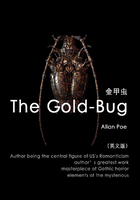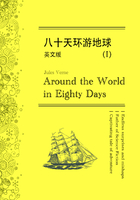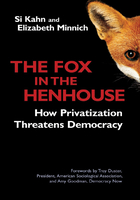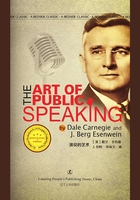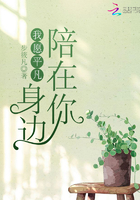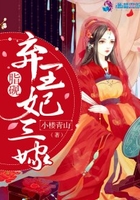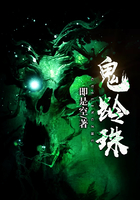"Desai has a touch for alternating humor and impending tragedy that one associates with the greatest writers… .
—O: The Oprah Magazine
"SUMPTUOUSLY WRITTEN."
—The New Yorker
"VAST AND VIVID, FULL OF HUMOR AND FURY. CAPTIVATING."
—The Washington Times
Praise for The Inheritance of Loss:
"If book reviews just cut to the chase, this one would simply read: This is a terrific novel! Read it! Desai characters are so alive, the places so vivid, that we are always inside their lives. Her insights into human nature, rare for so young a writer, juggle timeless wisdom and twenty-first-century self-doubt."
—Ann Harleman, The Boston Globe
"Desai is wildly in love with the light and landscape and the characters who inhabit it. Summer comes alive with its sights and sounds and smells, and the rainy season seems to pour down with more force than in any other novel you've read.… [She has] a love for language that few American writers her age seem able to rival. This story of exiles at home and abroad, of families broken and fixed, of love both bitter and bittersweet is one of the most impressive novels in English of the past year, and I predict you'll read it… with your heart in your chest, inside the narrative, and the narrative inside you."
—Alan Cheuse, Chicago Tribune
"If god is in the details, Ms. Desai has written a holy book. Page after page, from Harlem to the Himalayas, she captures the terror and exhilaration of being alive in the world."
—Gary Shteyngart, author of Absurdistan
"The immigrant experience … [is] tackled [here] with energy and intelligence… . Ms. Desai's Indian characters are exquisitely particular—funny but never quaint, full of foibles but never reduced by authorial condescension. Bittersweet, entertaining, and just shy of tragic."
—The Economist
"With its razor insights and emotional scope, The Inheritance of Loss amplifies a developing and formidable voice."
—Jenifer Berman, Los Angeles Times
"A revelation of the possibilities of the novel. It is vast in scope, from the peaks of the Himalayas to the immigrant quarters of New York; the gripping stories of people buffeted by winds of history, personal and political. Kiran Desai's voice is fiercely funny—a humor born out of darkness, the laughter of the dispossessed. It is a remarkable novel because it is rich in that most elusive quality in fiction: wisdom."
—Suketu Mehta, author of Maximum City
"The Inheritance of Loss, so moving, funny, and unflinching, is the best novel I've yet read about contemporary immigrant life and the ongoing parallel world 'left behind.' And the writing is extraordinary: astonishingly observant and inventive, joyously alive. Really, it's just the sweetest, most delightful new novel I've read in ages!"
—Francisco Goldman, author of The Divine Husband
"With her second novel, Kiran Desai has written a sprawling and delicate book, like an ancient landscape glittering in the rain… . Stories radiate from each of these characters: from their pasts, from their romances, from the adventures of the cook's son as an illegal immigrant in America, each of the threads leading toward a core of love, longing, futility, and loss that is Desai's true territory. [She] has a touch for alternating humor and impending tragedy that one associates with the greatest writers, and her prose is uncannily beautiful, a perfect balance of lyricism and plain speech. She has a flawless ear for the different castes, the different generations, the worlds of Anglophilic sisters at tea and illegal immigrants arguing in a bakery in Harlem. Novels have two aims, Flannery O'Connor once wrote, to reveal mystery and manners, and Desai has mastered both."
—O: The Oprah Magazine
"A nation's tragedies, great and small, are revealed through the hopes and the dreams, the innocence and the arrogance, the love betrayed and the all-too-human failings of a superbly realized cast of characters. Kiran Desai writes of postcolonial India, of its poor as well as its privileged, with a cold eye and a warm heart. The Inheritance of Loss is an exquisite novel: mature, significant and a first-rate read."
—Binnie Kirshenbaum, author of An Almost Perfect Moment
"A tender story of a crotchety Anglophile Indian judge; his orphaned sixteen-year-old granddaughter, Sai; his subservient cook; and the cook's son, Biju, whose hellish passage through the dirty basements and prep kitchens of glittering New York City restaurants bleakly parallels the goings-on back home… [Hers] is an incredibly unromantic vision, and seldom has an author offered so fearless a glimpse into how ordinary lives are caught up in the collision of modernity and cultural tradition."
—Jenny Feldman, Elle
"The writing has a melancholy beauty, especially in its sensuous evocations of the natural world."
—Donna Rifkind, The Washington Post
"Briskly paced and sumptuously written, the novel ponders questions of nationhood, modernity, and class, in ways both moving and revelatory."
—The New Yorker
"Although it focuses on the fate of a few powerless individuals, Kiran Desai's extraordinary new novel manages to explore, with intimacy and insight, just about every contemporary international issue: globalization, multiculturalism, economic inequality, fundamentalism, and terrorist violence. [It] is lit by a moral intelligence at once fierce and tender. Desai's prose has uncanny flexibility and poise. She can describe the onset of the monsoon in the Himalayas and a rat in the slums of Manhattan with equal skill. We … marvel at Desai's artistic power."
—Pankaj Mishra, front-cover review in
The New York Times Book Review
"Ricochets between two worlds, held together by Desai's sharp eyes and even sharper tongue. Desai's language [is] vivid and wicked.… [She has a] keen sense of detail and a fine ear for dialogue. Glorious … luminous."
—Sandip Roy, front-cover review in the
San Francisco Chronicle
"Stunning… In this alternately comical and contemplative novel, Desai deftly shuttles between first and third worlds, illuminating the pain of exile, the ambiguities of postcolonialism, and the blinding desire for a 'better life.'"
—Publishers Weekly (starred review)
"It is a work full of color and comedy."
—Marjorie Kehe, The Christian Science Monitor
"Vast and vivid, full of tastes and smells, voices and accents, humor and fury. It is a captivating book."
—Stephanie Deutsch, The Washington Times
"A meditative look at the conflicting bonds of love and duty."
—Vogue
"The book's magic lies in [its] rich images. A-."
—Missy Schwartz, Entertainment Weekly
"[Desai] details its characters' hardships head-on, and her elegant prose makes their experiences hard to forget."
—Reena Jana, Time Out
"A rich stew of ironies and contradictions. Desai's eye for the ridiculous is as keen as ever."
—Kirkus Reviews
"Kiran Desai is a terrific writer. This novel richly fulfills the promise of the first."
—Salman Rushdie
Praise for Hullabaloo in the Guava Orchard:
"A meticulously crafted piece of gently comic satire—a small, finely tuned fable that attests to the author's pitch-perfect ear for character and mood, and her natural storytelling gifts … The author delineates [the characters] with such wit and bemused affection that they insinuate themselves insidiously in our minds."
—Michiko Kakutani, The New York Times
"An enchanting first novel… a beguiling narrative… [with] bountiful and delicious results."
—Kirkus Reviews (starred review)
"Desai is a lavish, sharp-eyed fabulist whose send-up of small-town culture cuts to the heart of human perversity."
—The New Yorker
"Clearly envisioned and opulently told … Hullabaloo in the Guava Orchard is as memorable as its title. With it Desai joins the ranks of Anglo-Indian writers who have energized literature with their imaginative, complex storytelling."
—Chicago Tribune
"Desai's first novel is a wild, sad, humorous story … full of wonderfully portrayed characters and beautifully vivid descriptions… . An unqualified pleasure to read."
—Library Journal (starred review)
"Crackling, witty, sharply visual prose… She is a delightfully funny, amiable satirist."
—The Atlantic Monthly
"A clever, haunting parable … Desai relies on sheer imagination to engage her reader in examining the moods and eccentricities of Indian culture. This she accomplishes with remarkably complex characters, unpredictable plot twists, and vivid descriptions… . A spectacularly fresh vision."
—San Francisco Chronicle
"A delicious blend of humor and magic, hilarity and wisdom—and unexpected poetry. Kiran Desai's language will continue to delight long after you turn the last page."
—Chitra Banerjee Divakaruni
"This is a beguiling novel, fresh and funny and warmhearted."
—Roxana Robinson
"Lush and intensely imagined. Welcome proof that India's encounter with the English language continues to give birth to new children, endowed with lavish gifts."
—Salman Rushdie
"A hullabaloo of a debut from a vibrant, creative imagination."
—Gita Mehta
"Desai's first novel… is an exuberant romp full of whimsy, humor and affectionate satire. Her artful magic realism coupled with her lyrical prose makes for unusually bracing reading."
—The Plain Dealer (Cleveland)
The Inheritance of Loss
ALSO BY THE AUTHOR
Hullabaloo in the Guava Orchard
To my mother with so much love
Boast of Quietness
Writings of light assault the darkness, more prodigious than
meteors.
The tall unknowable city takes over the countryside.
Sure of my life and my death, I observe the ambitious and would
like to understand them.
Their day is greedy as a lariat in the air.
Their night is a rest from the rage within steel, quick to attack.
They speak of humanity.
My humanity is in feeling we are all voices of the same poverty.
They speak of homeland.
My homeland is the rhythm of a guitar, a few portraits, an old
sword, the willow grove's visible prayer as evening falls.
Time is living me.
More silent than my shadow, I pass through the loftily covetous
multitude.
They are indispensable, singular, worthy of tomorrow.
My name is someone and anyone.
I walk slowly, like one who comes from so far away he doesn't
expect to arrive.
—Jorge Luis Borges
The Inheritance of Loss

